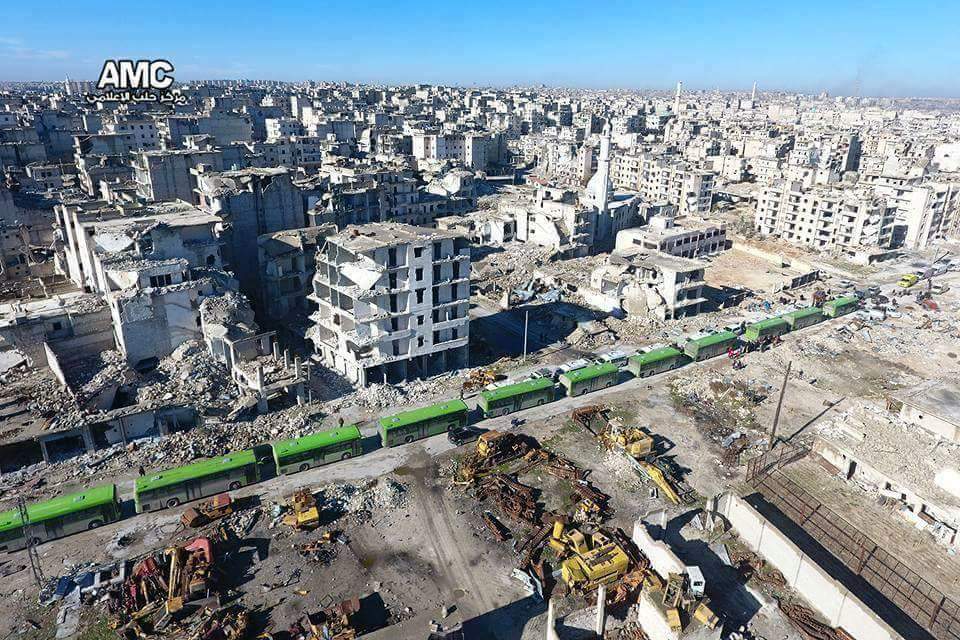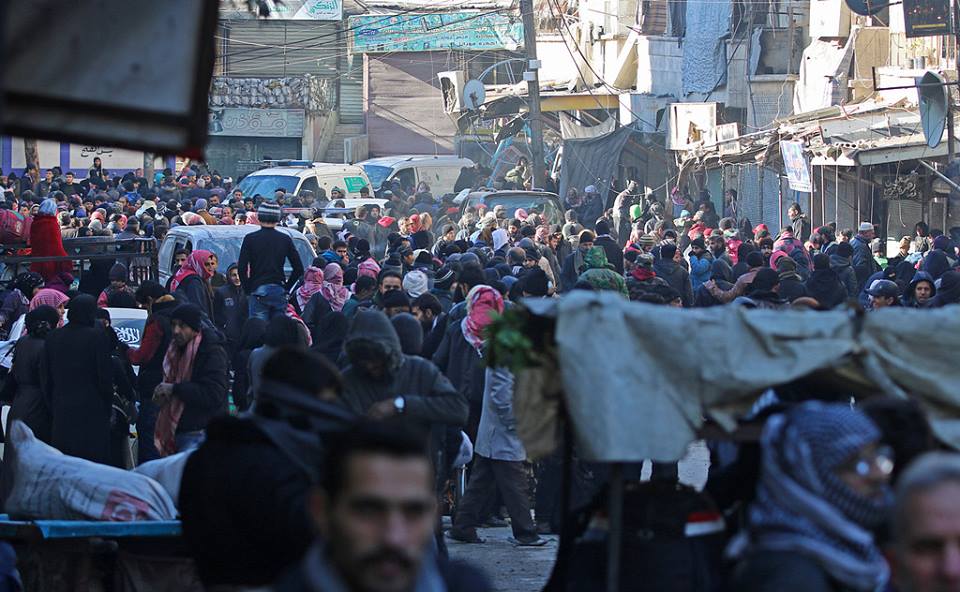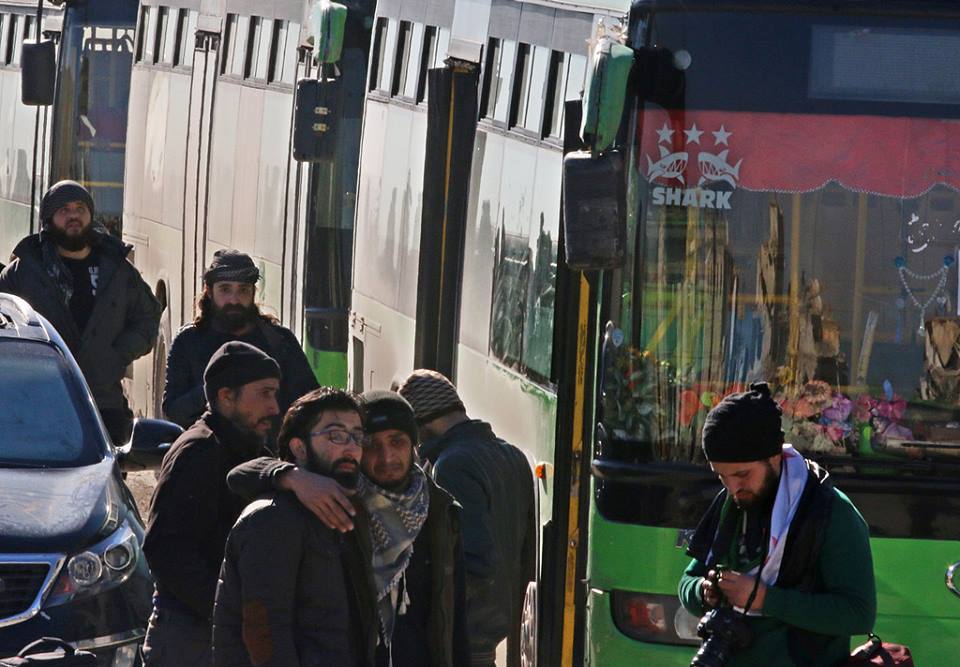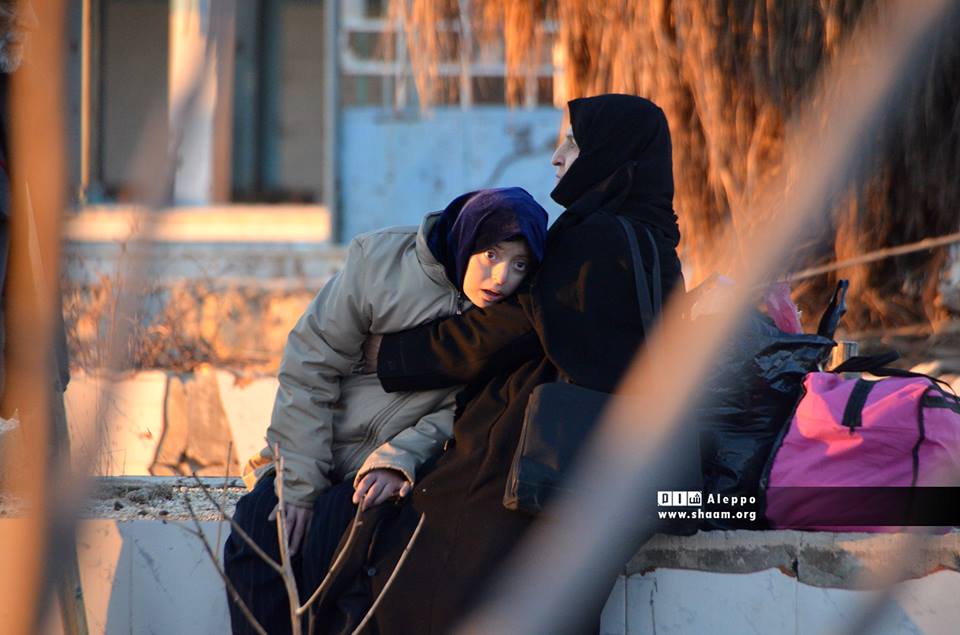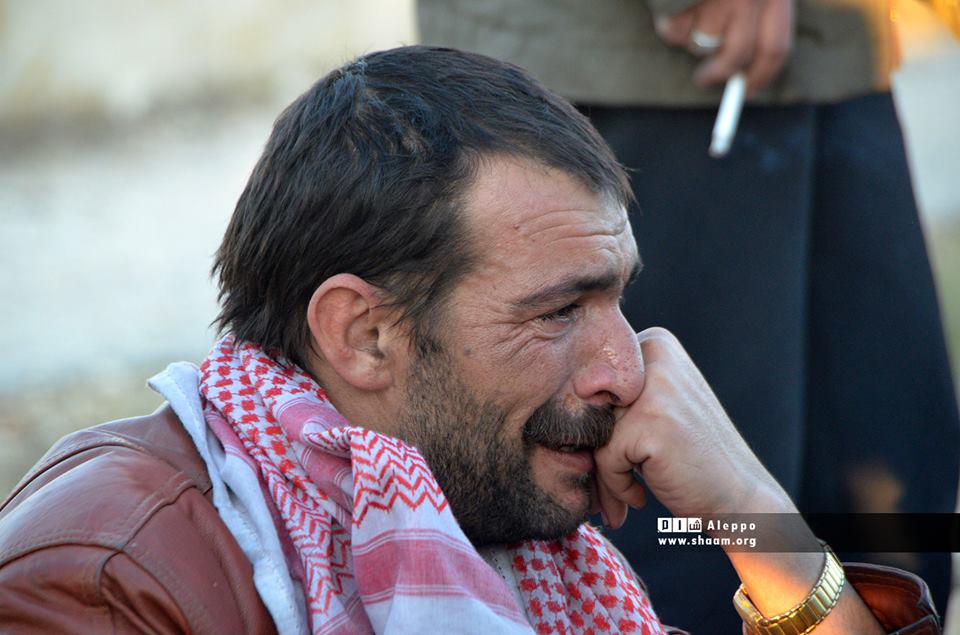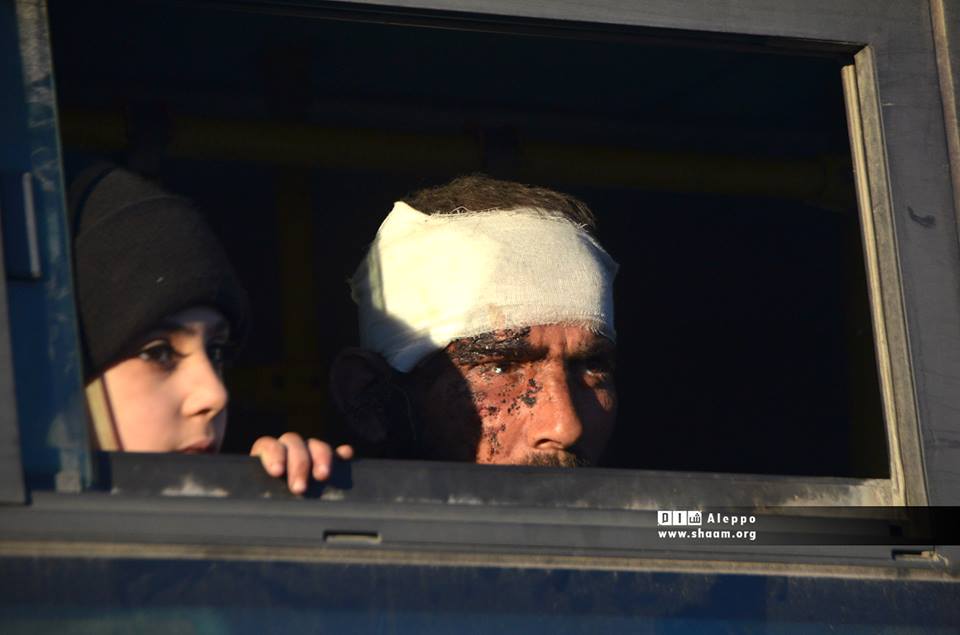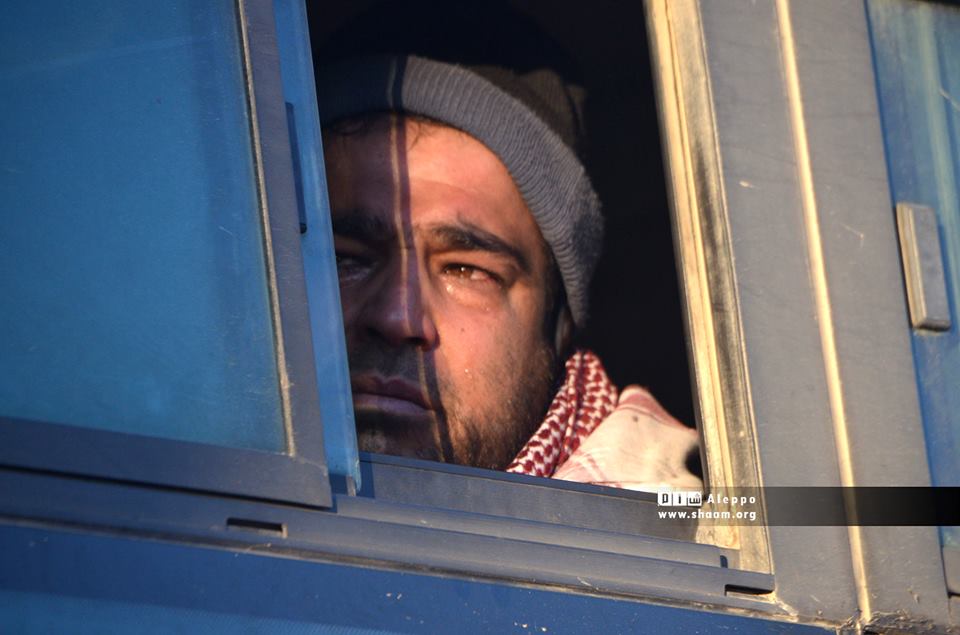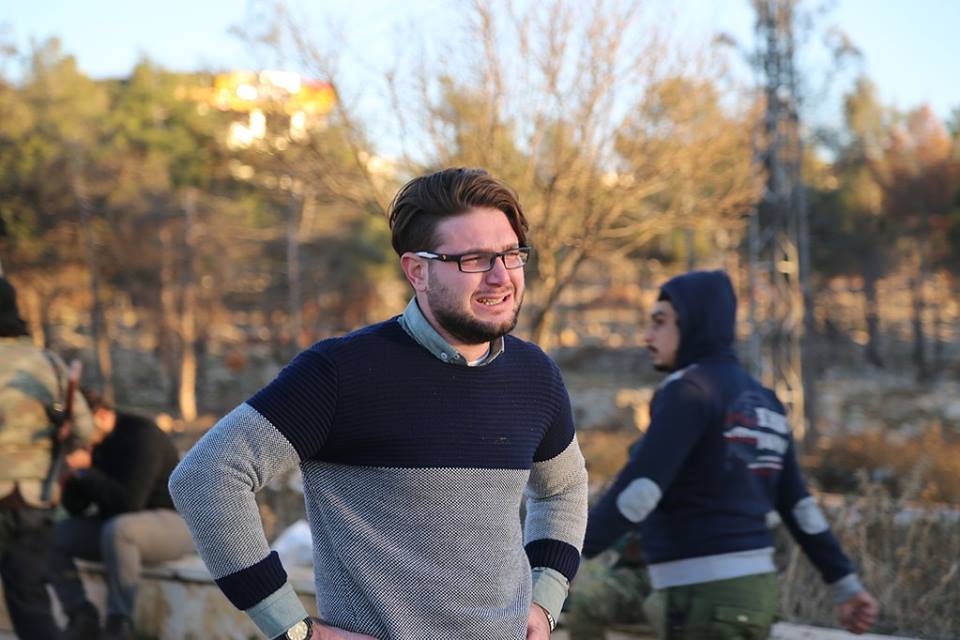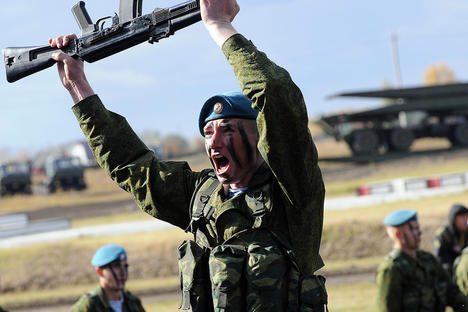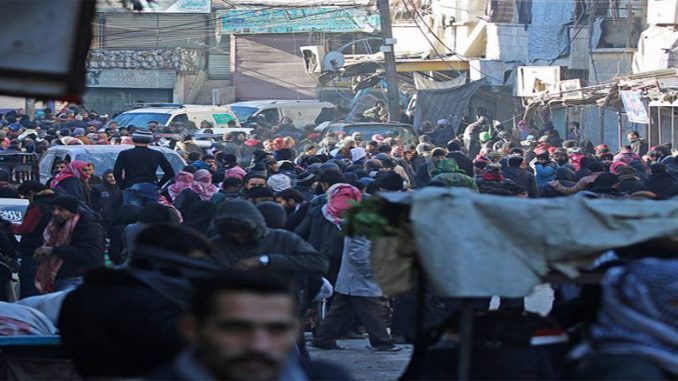
More than 3,000 people have been evacuated from besieged districts of east Aleppo under a deal brokered by Turkey and Russia and overseen by the Red Cross, ending resistance in the city and making the most important shift in the Syrian crisis.
After months of crippling siege, starvation policy, daily bombardment, fierce clashes and bloody massacres the Assad regime and its allies were able to oblige the rebels in Aleppo to surrender and make an agreement to leave the area they have been holding since 2012 after losing more than 90% of it.
The ceasefire agreement was a result of talks between Russia and Turkey.
By taking full control of Aleppo, Assad has proved the power of his military coalition, aided by Russia’s air force and an array of Shi’ite militias backed by Iran after his rule was close to ending after major losses in 2015.
On Wednesday morning, buses and ambulances were brought to evacuate rebel fighters and their families – only to be turned away shortly afterward as the ceasefire fell apart and the bombardment was resumed again.
However, the bombardment stopped at night and the agreement was resumed to evacuate the rebels and civilians on Thursday.
3000 civilians evacuated in the first phase
Some 3,000 civilians and more than 40 wounded people, including children, were evacuated from east Aleppo on Thursday in two evacuations, the International Committee of the Red Cross (ICRC) said in a statement.
“Many more” rotations of buses and ambulances would be needed in coming days, said Robert Mardini, ICRC regional director for the Near and Middle East. He had just been briefed by ICRC’s Syria delegation chief Marianne Gasser in Aleppo.
“This for us is the first step, it was a positive one,” Mardini said, after the first of two evacuations from the eastern part of the city where government forces are poised to take full control.
The ICRC said a third convoy had headed for Aleppo after dusk.
The first evacuees were escorted on buses and 13 ambulances through government-held west Aleppo to opposition-controlled areas, where they will choose where they want to go.
A team of 14 ICRC staff and nearly 100 volunteers from the Syrian Arab Red Crescent (SARC) took part in the operation, for which they needed a crane to remove debris and burned buses to clear the way into “volatile and unpredictable” east Aleppo, Mardini said. Gasser has also overseen evacuations from Madaya and the Old City of Homs during the nearly six-year war.
“The report we got inside and what my colleagues were telling me was heartbreaking. People are totally exhausted, disillusioned, in very bad shape,” Mardini said.
“But they were so happy to see us, they were thankful for us being there, although we failed them, because it’s too little too late, but yet it is important.”
“So far, the vast majority of people we transferred today are civilians,” he said. The priority remains to evacuate the critically injured, because “it’s a matter of life and death” and to supervise the evacuation of civilians, he said.
Mardini, asked about evacuation of fighters still in east Aleppo, said: “We do not have clear plans … We don’t know for the next rotation. These are things that are negotiated as we go.”
Mass displacement
Leaving the city is a tragedy for Aleppo’s civilians, who watched their dreams in a free life being taken away, watched their loved ones die one after another, and were finally forced to evacuate their homes to be refugees in their own country.
“We will always remember and never forget how the criminals of the world forced Aleppo’s people to choose between two options, collective death or collective forced displacement, and we chose the lesser of the two crimes,” said one activist in a besieged opposition-held district.
The civilians in Aleppo lived through all kinds of fear in the past days. Fear of death in the hell their neighborhoods were turned into, fear of being arrested and tortured after fleeing to the regime-controlled areas, and at last the fear of being raped or executed by Assad regime and his allied militias after rebels’ withdrawal.
Even after their escape to regime-held areas, the men were abducted by Assad regime and moved to unknown areas.
That left them no options but to be evacuated to Idlib.
Reports say that up to 50,000 people remained ahead of the evacuation, including about 4,000 fighters and about 10,000 family members of fighters.
However, one Turkish government minister said up to 100,000 people might have to be evacuated.
Zouhir Al Shimale, an independent journalist in east Aleppo, said “hundreds of families” have gathered at the departure point for the buses.
“Civilians are given the choice to stay or leave. If they stay, they’ll be under regime control. Most of the people want to go because they are afraid of potential massacres by the regime,” Shimale added.
“In recent days, people are desperate to get to somewhere where we have the supplies – food, medicine, fuel – like we used to have in the days before the siege. Even if they are in refugee camps, but people still want to leave the besieged area.”
However, they had hope that they will return one day, to rebuild their homes and retrieve their lives.
Aleppoians Alienation pic.twitter.com/TM2s3CZJu1
— salah ashkar (@SalahAshkar) December 15, 2016
We will return someday #Aleppo pic.twitter.com/GuRB23mffB
— Ahmad Alkhatib (@AhmadAlkhtiib) December 15, 2016
Capturing eastern Aleppo is the biggest victory for Assad regime since the start of the revolution against him in 2011, restoring his control over the whole city apart from a Kurdish-held area that has not fought against him.
It is a victory for his allies, Russia and Iran, which have outmaneuvered the West and Assad’s regional enemies through direct military intervention.
For Assad regime, taking back Aleppo will help its forces focus on ending the remaining rebels-held areas. These areas include the rebels’ stronghold in Idlib in addition to isolated areas in rural Damascus, Homs, and Hama.
These areas have been under daily bombardment and crippling siege for years. The Old city of Homs and parts of rural Damascus has already been lost to Assad regime, and the remaining areas are expected to follow.
As a conclusion, defeating the rebels and retrieving Aleppo means destroying the last major resistance stronghold of the Syrian rebels and will lead eventually to the victory of Assad regime and ending the Syrian revolution.
The fate of rebel-held Aleppo spells the abject failure of the west’s contradictory and piecemeal policies. It is a humiliation for the UN. Its fall will be an unequivocal victory for Russian strategy, and the shameful and humiliating defeat for all those who said they stand with the civilians and left them to face annihilation including US, Turkey and all Arab states.
Aleppo will join an infamous list of cities whose names are synonymous with mass crimes committed while the world looked impotently on: Srebrenica, Grozny, even Guernica.

